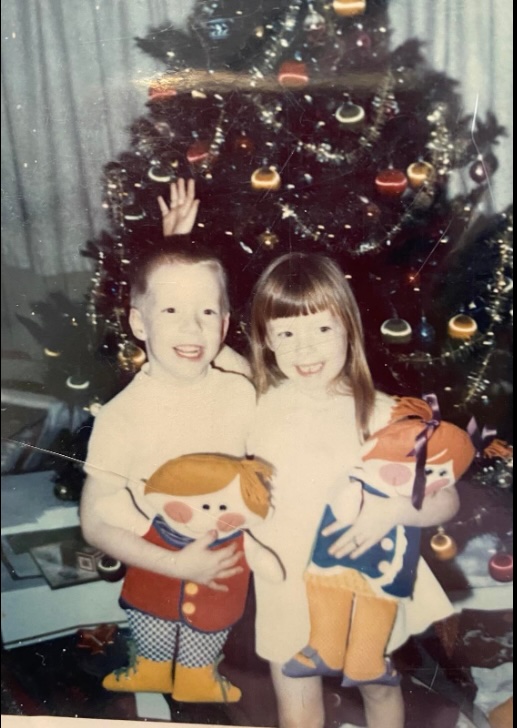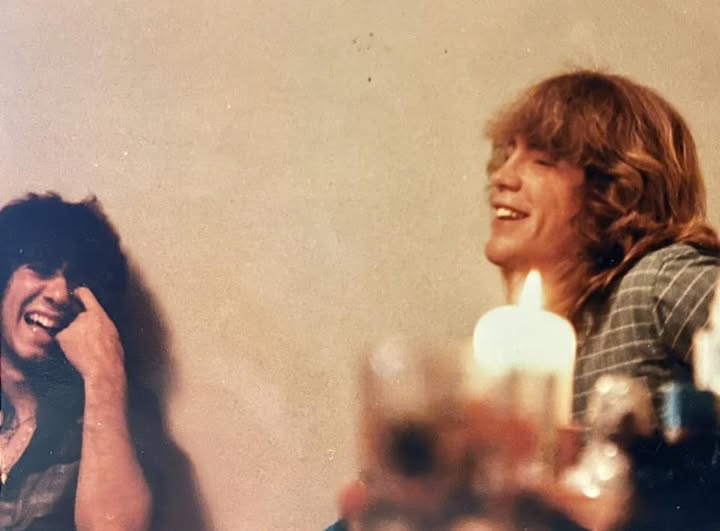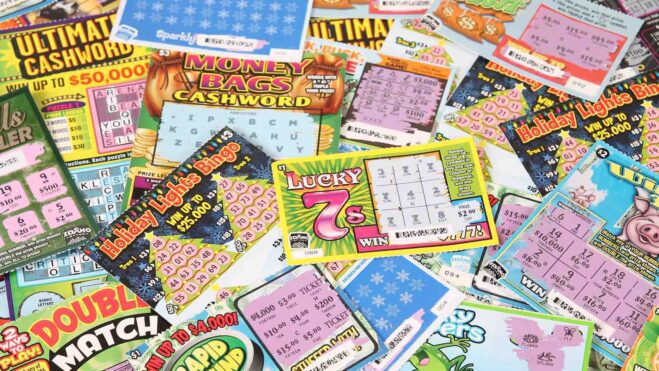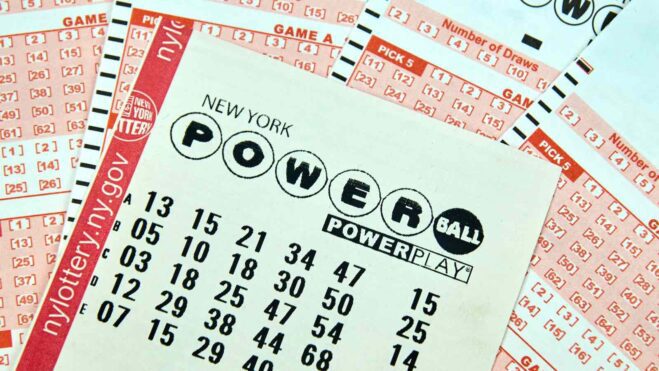When (Mostly) False Hope Is Better Than No Hope At All
A tale of hard times, a dream, and six unforgettable numbers
6 min

8. 14. 21. 27. 32. 41.
I woke up not remembering the context of the dream, just the numbers in my head and the recognition that they were lottery numbers and I had to play them in the Pick 6.
8. 14. 21. 27. 32. 41.
“The first few seem pretty good, but I don’t know about the last couple,” one of my friends said later when I shared what I had dreamed. He was right. They seemed too … sequential. Not random enough. But who was I to argue with a dream?
I grew up a middle-class kid in Old Bridge, New Jersey. My father worked as a machinist at a factory in Newark half an hour away. My mother was a waitress at a local diner. I have no recollection of them ever playing the lottery, or even talking about it.

Looking back on it, money was tight, but we always had everything we needed and a couple of things we didn’t, but wanted. Christmas brought a bonanza of toys, and a couple of times, new bikes. It was the 1970s, when a couple like my parents could own a house and a couple of cars and raise a family.
My father died in 1981, and after my twin sister Mary and I graduated from high school in ‘84, my mother sold the house and moved to an apartment close to the diner. Mary and I moved to an apartment a little farther away in the same complex where our older sister lived.
College was not in the cards for either of us. We just weren’t wired that way. The way we saw it, we’d just finally finished school. Why go back if we didn’t have to?
Mary got a job in the office of an exterminating company. I somehow lucked into a copy-editing gig at a small, local ad agency. We did OK. For a while.
A few months in, Mary lost her job at the exterminator. Not long after, I got fired from the copy-editing job when my supervisor, a woman in her early 30s, found a girl’s phone number on a piece of paper on my desk.
Why would she care about that, you ask?
Did I mention my supervisor and I were dating?
Desperate times …
We lost the apartment. Mary moved back with my mother. I grabbed a couch in my other sister’s apartment with her boyfriend and my two nephews and thought, What the hell do I do now?
I had no idea. So I tried everything.
I pumped gas. (New Jersey then, as now, prohibits consumers from pumping gas themselves.)
I cut lawns at the apartment complex.
I swung a sledgehammer for a concrete construction company that folded when the owner lost it all playing craps in Atlantic City. There was a three-day stint cutting vinyl siding for a home-building outfit, and another tearing down the interiors of burned-out houses.
I drove a truck for an outfit in Edison, where my co-workers, none of whom spoke English, laughed at my inability to make a particular kind of knot they used to secure the tarp over our precious cargo, which was scrap metal. Lasted one day.
I answered another ad for a dump-truck driver near my old neighborhood.
“Can you drive a double clutch?” the guy asked me.
“Sure.”
I couldn’t get it out of second gear.
In the middle of all this, and for a variety of reasons, my living arrangements with my sister became untenable and I prepared to leave. (I did move back in with her later for a short while.)
I had a couple of choices.
The old man who ran the boxing club I trained out of offered to let me stay in the back room of the gym, but of course it was contingent on my boxing, which I didn’t want to do anymore.
The other was a nice, small, cleared-out section of woods across the street from a convenience store about a mile away from the apartment complex that I happened on and would have been perfect had it not been for the approaching noise of what sounded like very large and pissed off dogs.

At exactly the right time, my dearest friend from high school and his family invited me to live with them in their house in the neighborhood in which we’d grown up. They had no obligation, familial or otherwise, to help me. But they did, and to this day I am grateful to them.
And the search went on.
I called about an ad placed by a large landscaping company. A lady answered.
“Are you sure?” the woman asked. “They work really hard.”
“Are you kidding me? Hard work is my middle name!”
At 7 a.m. the next day, about a dozen of us painstakingly planted a long row of small bushes along the edge of a large commercial property. It took four hours. The foreman showed up at lunchtime, barked that they were planted wrong, and had us pull them out and start over.
Five o’clock came 17 hours later, and the next day I was back at the classified ads.
More trial and error (mostly error)
They weren’t all blue-collar jobs. I got a job as a salesman for a company that sold in-home security alarms and I left over the lunch break when the owner said I’d have to get my hair cut short.
I was desperate for work, but not that desperate. I still wanted to be able to get laid.
I interviewed for and was offered a bank-teller position, but turned it down for a lucrative-sounding telemarketing gig that I quit after the first day when I discovered it was lucrative only to those who were spectacularly good at lying.
It went on like this for a while.
My friend’s father got me a job unloading trailers at a UPS hub on the 11 p.m.-3 a.m. shift. At the same time, I was pumping gas at a service station a few days a week and helping another friend deliver large-screen TV sets on Saturday mornings for an electronics repair shop.
It was around this time that I had the dream.
8. 14. 21. 27. 32. 41.
Who the hell dreams up lottery numbers?
People who have no idea how they’re going to make it, that’s who. The prior 18 months or so had shown me that the only way I was ever going to have any money was if I won the lottery. So my mind produced what I would need to do it.
After that dream, winning the lottery was all I could think about. I never dreamed the numbers again because I didn’t have to. They were on my mind all day, every day. I played every week.
8. 14. 21. 27. 32. 41.
Insights from a pro
Psychologists call this emotion-focused coping.
“The idea of emotion-focused coping is that rather than try to directly solve the problem you’re facing, you try to alleviate your distress associated with the problem,” Alex Williams, director of the Psychology Program & Psychological Clinic at the University of Kansas, told me in an email. “Stereotypically, people engage too frequently in emotion-focused coping; consequently, psychologists find themselves extolling the benefits of problem-focused coping.”
That makes sense: Why fantasize about your circumstances changing instead of working to change them? But it’s more complicated than that. Williams said there are times in which emotion-focused coping deserves more consideration.
“There are some people who are too ‘in their thoughts,’” Williams wrote. “For them, problem-focused coping turns into rumination: running through mental simulation after mental simulation of the potential barriers to the outcome they want and how they would address those barriers if they emerged.”
Williams noted that these people should be more open to using emotion-focused coping, like fantasizing, which is what I was doing while panicking about where my life was headed.
“You’re much better off fantasizing about winning the lottery than engaging in an exhaustive cycle of rumination about the circumstances keeping you from paying down your debt,” Williams wrote.
I kept looking. Pumped more gas. Unloaded more trailers. Delivered more giant-screen TVs. Landed a job covering township zoning board meetings and such for minimum wage at a weekly newspaper, then quit because, well, have you ever sat through a township zoning board meeting?
I even did a semester or two of college at night, which only served to remind me why I’d never gone to begin with.
I got a job unclogging sewers for Roto Rooter ($8 an hour and all I could eat!) and left that for a job that was advertised as a loading dock position but was actually a temporary job gutting an old hotel that was being demolished.

I kept playing those numbers. They never came out of course, and eventually I found my way. It took a while. But I never forgot the numbers.
8. 14. 21. 27. 32. 41.
I still play them every once in a while. They are like old friends who comforted me during a hard stretch in another lifetime. They gave me hope. It was false hope, but hope nonetheless, which sometimes is all you need.





